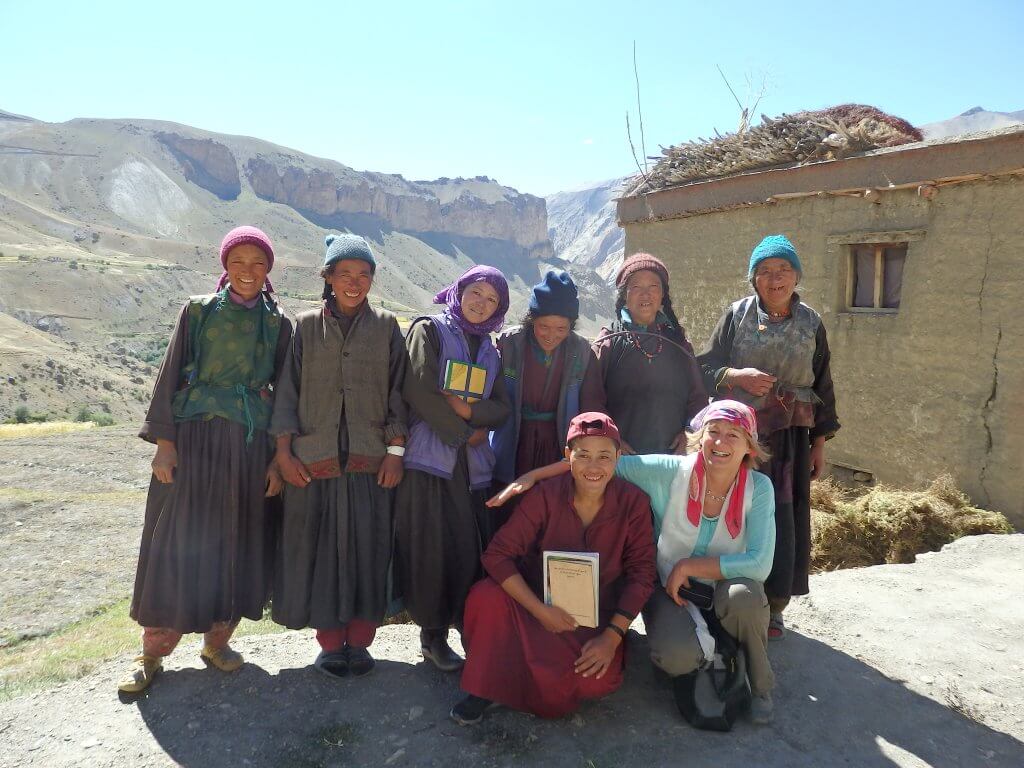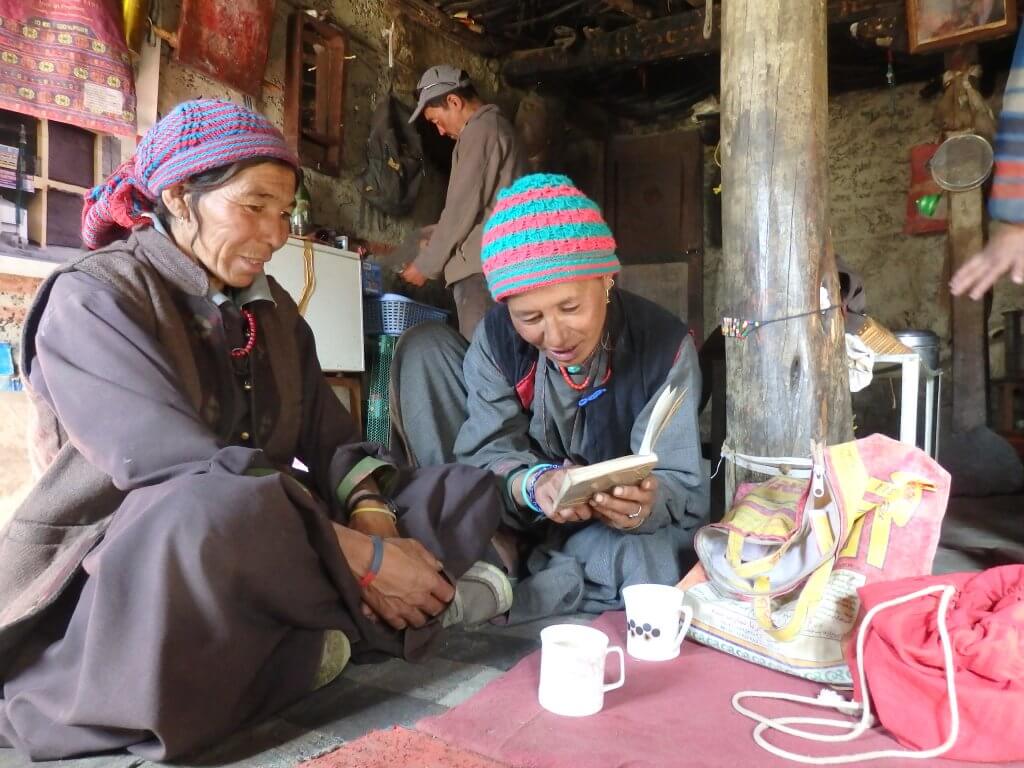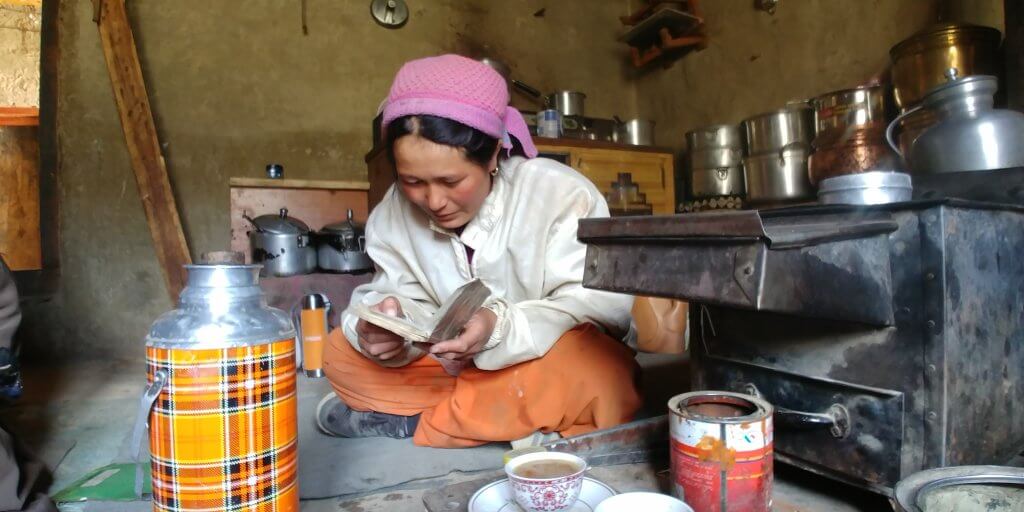Committed and Highly Motivated – The Women of the Senge La Region

Lingshed
Lingshed is the largest village in the Senge La region, with a population of 490. The scattered settlement is divided into seven hamlets.
The village was included in the adult education project last year. Around 80 women take part in the winter classes. In each hamlet, one teacher is funded by the EAL association. The participants themselves are responsible for organizing the teachers. The nuns from Lingshed Monastery agreed spontaneously when asked.
For two months in winter, classes in the Ladakhi language Bhoti were held on Saturdays and Sundays. And the results are remarkable: last winter, 90% of the participants learned to read fluently.
In personal conversations, the village women shared that they always carry a small prayer booklet with them. They read whenever they find the time — especially while herding sheep, which offers a welcome change of pace.

Skiumpata, Yulchung, Nyaraks, Dipling
In these villages, the women shared during gatherings that they would like to continue participating in the winter classes. They expressed great joy in learning. A 30-year-old woman said that she would have loved to attend school as a child. She deeply appreciates having the opportunity now, as back then, schooling was only available to a few children.

Winter Classes in Choglamsar
The initiator and head of training, Sonam Dorje, developed a curriculum and a budget for all necessary resources in collaboration with local representatives from the Senge La region. Already in the winter of 2018/2019, more than 100 students participated in the winter classes in Choglamsar. Over the course of two months, nine teachers provided instruction in science, philosophy, mathematics, and languages.
This privately organized program can only take place if all costs — including salaries, teaching materials, food, and basic furnishings — are covered by sponsorships. To ensure that the classes can continue in the coming years, the project relies on various sponsors who are willing to make a fixed annual contribution. The project is planned to run for five years.
The board of the EAL association is convinced of the value of the Winter Education Project. Until now, the winter classes for students were held in various villages. However, the remote locations often made it difficult to find qualified teachers, and infrastructure was usually lacking. Centralizing the program helps reduce costs and provides students with higher-quality learning opportunities.
In response to a request, EAL has committed to covering two teacher salaries for a period of five years.